China will not be 'intimidated': envoy
Updated: 2014-04-28 07:11
By
ZHANG FAN in New York
(China Daily USA)
|
||||||||
In protecting its sovereignty and integrity, China will not be intimidated or compromised, said Chinese Ambassador to the US Cui Tiankai.
"Nothing — whether direct coercion or implied threat, whether unilateral statement or a so-called joint statement as the one just issued in Tokyo — can intimidate China or compromise our principles," Cui said during a speech at Harvard's Kennedy School of Government on Friday.
Cui made the remarks after President Barack Obama, during his recent Asia tour, pledged to support Japan in its territorial disputes with China over the Diaoyu Islands.
Obama's statement was strongly rejected by the Chinese government as China's foreign ministry urged the US to "respect the fact" that the islands are China's "inherent territory".
China also criticized the US-Japan security treaty as a product of the Cold War era and should not be aimed at a third party nor harm China's territorial sovereignty.
Cui said that managing the current security challenges in the Asia Pacific is "clearly beyond the scope and capability" of any military alliances. What is needed, he said, is a "common, comprehensive and cooperative approach".
"China takes a constructive approach to the differences it has with the US on some regional issues," he said. "We believe that the two countries should do their best to narrow those differences and manage them skillfully, so the differences will not disrupt our overall bilateral relationship or the regional situation."
"China's position has always been firm and clear cut, such consistency and clarity help reduce the possibility of miscalculations by others," he added. "So let there be no underestimating of China's readiness to defend its core interests."
Obama's Asia tour included four stops — Japan, the Republic of Korea, Malaysia and the Philippines. His trip was described as the "latest manifestation" of the Asia Pacific rebalancing policy of the US government.
Cui said that China recognized the US' presence and interest in the region and welcomed a "constructive role" by the US in regional affairs, and, he added, China sees win-win interaction with the US in the Asia Pacific.
The year 2014 marks the 35th anniversary of diplomatic ties between China and the US. To face the new challenges, Chinese President Xi Jinping proposed building a new model of major country relations during his California summit with Obama in 2013.
The new model, according to Xi, is based on avoidance of conflict and confrontation, mutual respect and win-win cooperation, to which Obama responded warmly.
"This new model rejects the old zero-sum game among major powers, that has resulted in so many conflicts and confrontations in the past," Cui said in the speech.
He said the new model aims at "win-win cooperation on the basis of mutual respect" and "it is not a favor given by one side to the other" and can only be achieved by requiring positive energy from both sides.
"A serious commitment has to be made and honored by both sides," Cui said. "We in China remain firmly committed to this goal. With such a positive political view, the long term common interest of both countries will be served."
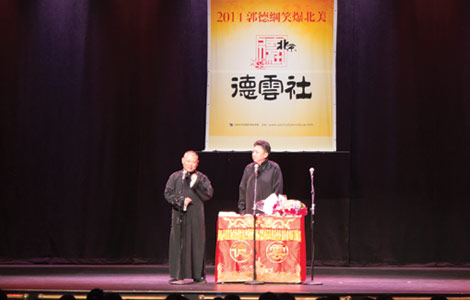
 Chinese comedian gets Broadway laughing
Chinese comedian gets Broadway laughing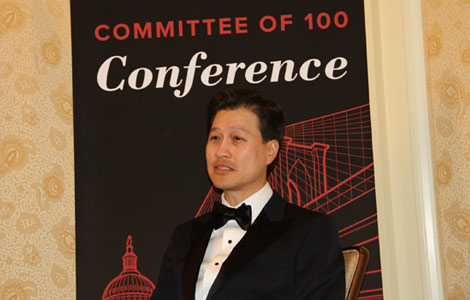
 Dominic Ng completes term as C-100 chairman
Dominic Ng completes term as C-100 chairman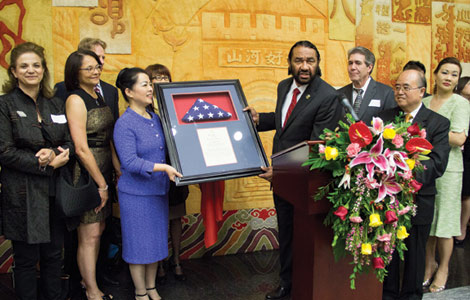
 Farewell held for Xu
Farewell held for Xu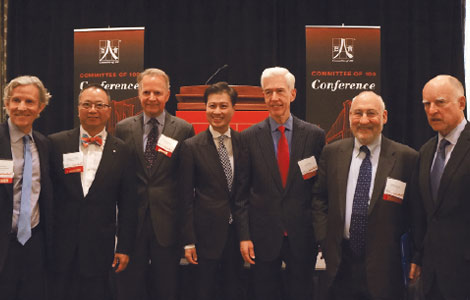
 C-100's annual meeting focuses on China's reforms
C-100's annual meeting focuses on China's reforms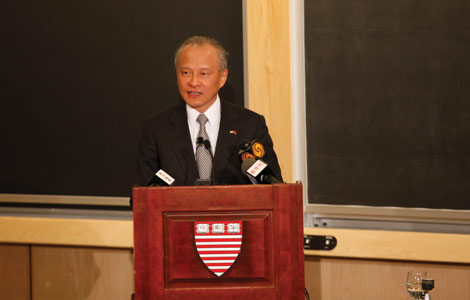
 China will not be 'intimidated': envoy
China will not be 'intimidated': envoy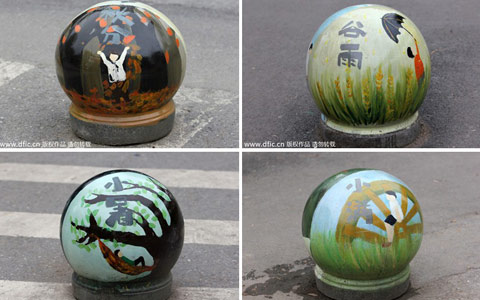
 Amazing manhole cover graffitos dazzle campus
Amazing manhole cover graffitos dazzle campus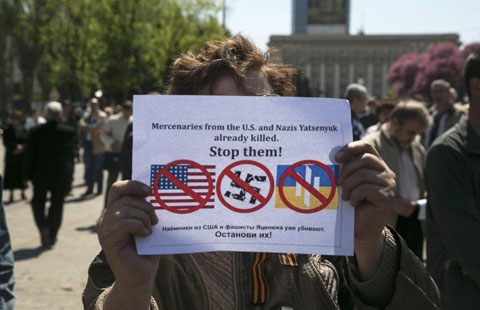
 Pro-Russian protesters occupy TV building in eastern Ukraine
Pro-Russian protesters occupy TV building in eastern Ukraine
 Cars with colorful cartoon drawings parade in Hangzhou
Cars with colorful cartoon drawings parade in Hangzhou
Most Viewed
Editor's Picks

|

|

|

|

|

|
Today's Top News
C-100 holds 23rd annual convention
Xi named again in Time's top 100 list
It's lights out for US TV series ordered off sites
Rethinking ink in Chinese modern art
An ex-warrior embraces a US-China 'partnership'
Huawei executive says it still seeks US sales
Huawei executive says it still seeks US sales
Rethinking ink
US Weekly

|

|






